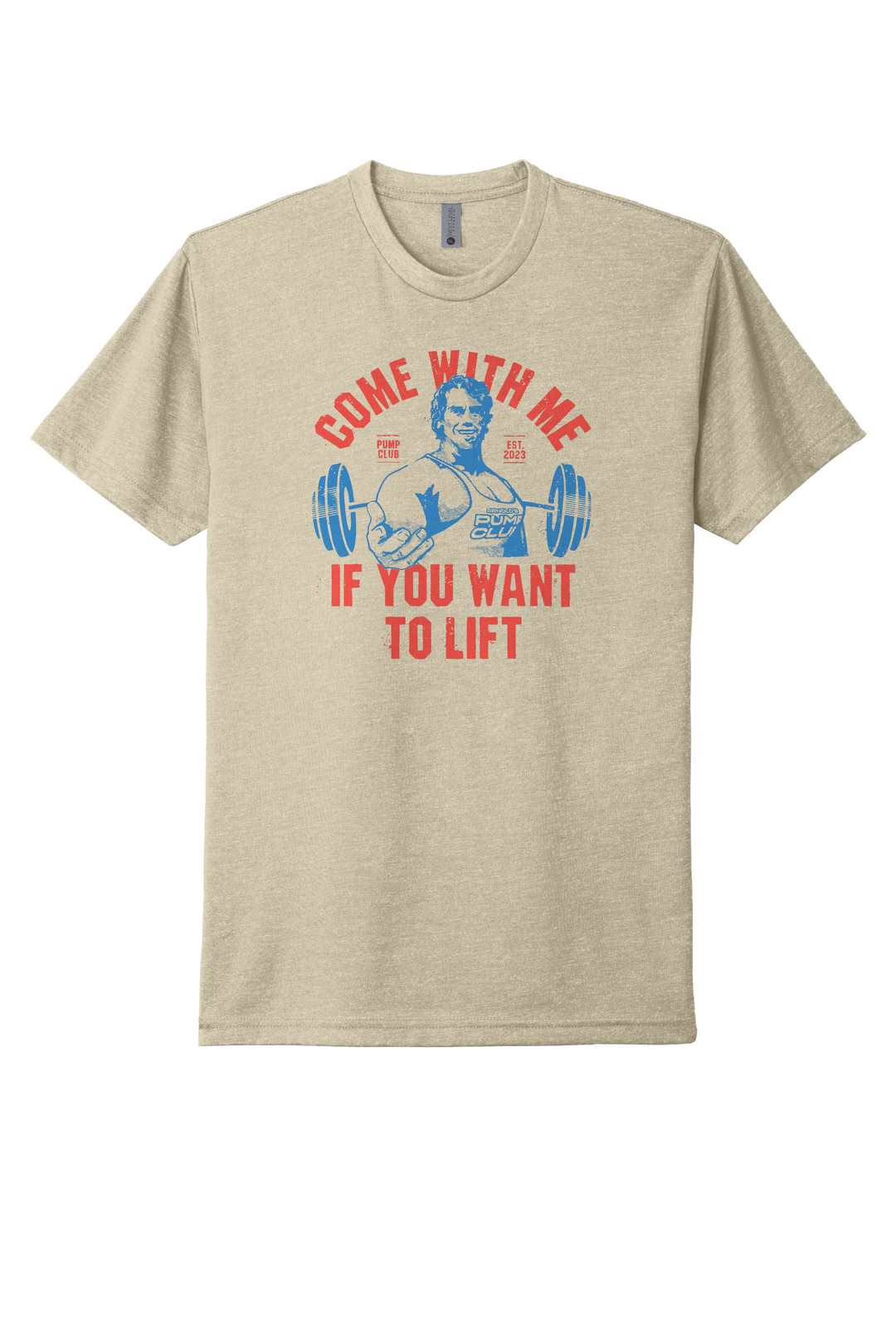Welcome to the positive corner of the internet. Here’s a daily digest designed to make you healthier in less than 5 minutes. If you were forwarded this message, you can get the free daily email here.
Today’s Health Upgrade
A drink for life
Gone but not forgotten
The real tastemaker
Men are in crisis
Arnold’s Podcast
Motivation every day. Want Arnold to help you start your day? Each morning, we post a new podcast with tips you’ll find in the daily email and bonus stories, wisdom, and motivation from Arnold. Listen to Arnold's Pump Club podcast. It's like the daily newsletter but with additional narration and thoughts from Arnold. You can subscribe on Apple, Spotify, Google, or wherever you listen to podcasts.
A Drink For Life
Arnold is famous for saying, “Milk is for babies,” but adults can benefit from the beverage too.
Recent research suggests that dairy does your body good throughout all stages of life.
Scientists recently examined children, older adults, and postmenopausal women, and each study came to the same conclusion — if your body can tolerate dairy (assuming no allergies or intolerance) — there are a lot of potential benefits to adding things like milk, yogurt, and cheese to your diet. Dairy products improve bone mineral density, bone turnover, and hormone regulation associated with healthy bones. They also reduce the risk of fractures from falls in older people and help children grow taller.
And don’t worry, despite some myths, a massive review of 58 different randomized controlled trials (the gold standard) found that dairy intake decreased fat mass, waist circumference, and body weight while increasing lean mass.
The benefits likely come from dairy's high calcium and protein content. Calcium and, to a lesser extent, protein are critical for bone health. It’s important to get a consistent amount throughout your life because bone changes can take a long time to occur. If you don’t eat a lot of yogurt, milk, or cheese, you may want to consider including some in your diet or make sure you’re getting enough calcium from other sources. Just remember that vegan cheese may not be fortified with calcium and is often low in protein. In one study, adults saw health benefits when consuming at least 1,100 mg of calcium and 70 grams of protein daily.
Gone, But Not Forgotten
Arnold recently gave me the ultimate honor and allowed me to share my father's story (see “Sentenced to Life”). He passed away after a 3-year battle with brain cancer.
On Saturday, I’ll participate in a walk to raise money for brain cancer research. The illness is terrible, and I hope that one day we can find a cure so no more people suffer. It would mean the world to me if you would like to honor my father — and anyone fighting cancer — and donate to the cause. I love the power of this village and truly appreciate your support. Thank you. -AB
The Real Tastemaker
Do you remember learning about how you experience taste? Growing up, you probably saw an image something like the one below.

There’s just one problem — your mouth does not experience taste sensation as it’s commonly taught. The idea of different taste sections on your tongue dates back to the early 1900s by German scientist David Hänig. But according to this great breakdown from the Smithsonian, we’ve known since the 1940s that this explanation isn’t correct.
Several studies have found that your entire mouth contains taste buds that are sensitive to all taste qualities. In other words, your tongue, the roof of your mouth, and even your throat can sense all different flavors.
Your taste buds have a lifetime of about one to three weeks. And genetic differences can determine whether you like certain flavors more than others (some people love bitter or sour, whereas others can’t stand it). And researchers continue to investigate whether you can reprogram taste preferences, such as reducing your desire for sweet food.
But, as we’ve discussed, “sweetness” likely isn’t the big problem. Ultra-processed foods (think cookies and donuts) have a perfect mix of salt, sugar, and fat that directly affects your brain, can shut off fullness signals, and lead to overeating. That’s why — even though your tongue and taste preferences are complicated — limiting ultra-processed foods can help you better control how much you eat.
Ketch’s Corner: Men Are In Crisis
I’ve been reading Richard Reeves’ fantastic book, Of Boys and Men.
Like many of you, I’ve seen articles about how young men and boys today seem to be lost. But the more of this book I read, the more shocked I became. We all know that women have had to fight for equality, and we still have more work to do, but reading about how programs meant to help less fortunate people find jobs or get into college have a great impact on women and almost zero impact on men, how men aren’t applying to college or finding jobs at the same rates as women, and how men aren’t excelling in school like women is just wave after wave of surprise.
Here are just a couple of highlights that I’ve made as I work my way through this book, which I would absolutely recommend to everyone:
“Except for the richest families (i.e., the top fifth), all the growth in household income since 1979 resulted from the increased working hours and earnings of women.”
“A 2021 report from the Survey Center on American Life identified a male ‘friendship recession,’ with 15% of men saying they have no close friends, up from 3% in 1990.”
“Fewer than one in ten jobs now require what the Bureau of Labor Statistics describes as ‘heavy work,’ which requires ‘occasionally lifting or carrying 51-100 pounds or frequently lifting or carrying 26-50 pounds.’ As the muscular demands of work decline, men are becoming physically weaker; one study of grip strength, a good marker of overall strength, shows a sharp decline among men. Meanwhile, and perhaps more surprisingly, women are getting physically stronger. In 1985, the average man in his early 30s could squeeze your hand with about 30 pounds more force than a similarly aged woman. Today, their grip strength is about the same.”
First of all, good for women. As a girl dad, I LOVE your gains. As a man who wants to follow Arnold’s mission to make this community into the biggest positive force the internet has ever seen for women and men of all ages, I’m worried about the men.
Reeves cites a study on suicidal men that we also found as we did research for Arnold’s book, Be Useful. The most commonly used words these men who have run out of hope used to describe themselves were “useless” and “worthless.”
I am not an expert and don’t have the answers for men who don’t want to apply to college, get a job, or move out of their parents’ homes. Reeves has some fantastic recommendations.
But this newsletter started as the 21st-century extension of Arnold’s fitness crusade. So the statistics about men’s declining strength caught my eye. That is something we do have answers for. And I’ve heard Arnold say hundreds of times that he learned all his life lessons in the gym.
We need to get these young men who have lost all hope into the gym. Or at least doing pushups and lunges at home. The first thing training teaches you is that you have the power to change your circumstances.
We’ve seen this in the emails and social media posts from the people in this Village and our app. When you all find the power of progressive resistance, first you change your bodies as you grow your strength, and what was hard becomes easy; and then you change your minds as you see that you have this power.
I’ve seen it in my own training. If you told me ten years ago that I would lift 500 pounds off the ground, I would have thought you were a lunatic. Now I’m chasing 600 pounds at almost 40 years old.
You find your power, and you keep expanding your limits. You feel better after training. Even on your worst days, it gives you a purpose.
This newsletter is for everyone, but I’m committing now that we will find a way to reach these men and boys who feel lost.
I know there are a lot of charlatans preaching resentment disguised as masculinity on the internet. They make a lot of money from hopelessness, and the people who follow their advice don’t find hope or purpose — they dive deeper into despair and anger.
We are committed to this positive corner of the internet, providing a positive and constructive alternative. If you feel lost, we are here for you. If you have ideas about how to reach out, reply and share them with us. We want to help.
—
Publisher: Arnold Schwarzenegger
Editors-in-chief: Adam Bornstein and Daniel Ketchell
























































